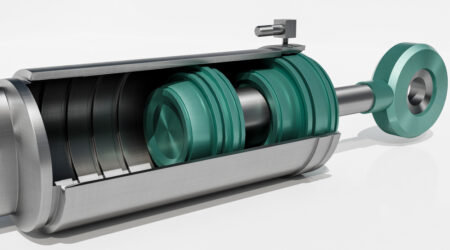Comprehensive Guide to Intrusion Alarm Systems
Introduction
In an increasingly uncertain world, security has become a paramount concern for both homeowners and businesses. Among the various security measures available, intrusion alarm systems stand out as a reliable and efficient solution. These systems are designed to detect unauthorized entry into a building or area and alert the property owner or security personnel, thereby preventing potential theft, vandalism, or other malicious activities. This blog delves into the workings, types, benefits, and considerations of intrusion alarm systems, providing a comprehensive understanding for anyone looking to enhance their security setup.
What is an Intrusion Alarm System?
An intrusion alarm system is a network of integrated electronic devices working together to protect a property from unauthorized access. When the system detects an intrusion, it triggers an alarm, which can be a loud siren, a silent alert to a monitoring center, or a notification to the property owner. The primary components of an alarm system include:
- Control Panel: The brain of the system that monitors inputs and triggers the alarm.
- Sensors: Devices placed at entry points like doors and windows to detect movement or forced entry.
- Alarms: Audible or silent alerts are activated when an intrusion is detected.
- Keypads and Remotes: Interfaces for arming and disarming the system.
- Cameras: Optional devices for visual monitoring and recording.
Types of Intrusion Alarm Systems
Intrusion alarm systems come in various types, each suited to different security needs and environments. Here are the main categories:
1. Wired Alarm Systems
Wired alarm systems are traditional security systems that use physical wires to connect all sensors and devices to the control panel. They are known for their reliability and are less susceptible to interference. However, installation can be complex and time-consuming, often requiring professional help.
2. Wireless Alarm Systems
Wireless systems use radio frequencies to communicate between devices and the control panel. They are easier and quicker to install compared to wired systems and offer greater flexibility in terms of device placement. However, they may be prone to interference from other electronic devices and require regular battery maintenance.
3. Monitored Alarm Systems
Monitored alarm systems are connected to a professional monitoring service. When the alarm is triggered, the monitoring center is notified, and they can take appropriate action, such as contacting the property owner or dispatching emergency services. This type of system provides an added layer of security but usually comes with a monthly fee.
4. Unmonitored Alarm Systems
Unmonitored systems rely on local alarms, such as sirens or flashing lights, to alert nearby individuals of an intrusion. They do not connect to a monitoring center. While they are cost-effective and can deter intruders, they depend on someone nearby to hear and respond to the alarm.
Benefits of Alarm Systems
Implementing an alarm system offers several significant advantages:
1. Deterrence
Visible alarm systems and signage can deter potential intruders. The risk of being caught or creating a disturbance often makes intruders think twice before attempting a break-in.
2. Immediate Response
Alarm systems provide immediate alerts, enabling a quick response to potential security breaches. This rapid response can significantly reduce the risk of loss or damage.
3. Peace of Mind
Knowing that a reliable system is in place to protect your property offers peace of mind. Whether you are at home, at work, or away on vacation, you can rest assured that your property is being monitored.
4. Lower Insurance Premiums
Many insurance companies offer discounts on premiums for properties equipped with alarm systems. This is because the presence of an alarm system reduces the risk of loss or damage, making the property less of a liability.
5. Remote Monitoring
Modern alarm systems often come with remote monitoring capabilities, allowing property owners to monitor their premises via smartphones or computers. This feature is particularly beneficial for those who travel frequently or own multiple properties.
Considerations When Choosing an Alarm System
Selecting the right alarm system involves careful consideration of various factors to ensure it meets your specific security needs. Here are some key considerations:
1. Type of Property
The type of property you need to protect will influence your choice of alarm system. A small apartment may require a different setup compared to a large commercial building. Consider the size, layout, and specific vulnerabilities of your property.
2. Budget
Alarm systems come in a range of prices, from basic DIY systems to sophisticated setups with professional monitoring. Determine your budget and weigh the costs against the features and benefits offered by different systems.
3. Installation
Decide whether you prefer a DIY installation or a professional installation. While DIY systems can save money, professional installation ensures that the system is set up correctly and optimally.
4. Monitoring
Consider whether you want a monitored or unmonitored system. Monitored systems provide an added layer of security but come with ongoing costs. Unmonitored systems are more affordable but rely on someone being present to respond to alarms.
5. Features
Modern alarm systems come with a plethora of features, including remote access, home automation integration, and environmental sensors (e.g., smoke, carbon monoxide). Identify the features that are important to you and ensure the system you choose supports them.
Maintenance and Testing
Regular maintenance and testing of your intrusion alarm system are crucial to ensure it remains effective. Here are some tips for keeping your system in top condition:
- Regular Testing: Test your system regularly to ensure all sensors and alarms are functioning correctly. Most systems have a test mode for this purpose.
- Battery Replacement: For wireless systems, replace batteries in sensors and devices as needed to prevent lapses in coverage.
- Professional Inspections: Consider annual inspections by a professional to check for any issues and perform necessary updates.
- Update Firmware: Keep the system’s firmware updated to benefit from the latest security enhancements and bug fixes.
Conclusion
Intrusion alarm systems are an essential component of modern security strategies for both residential and commercial properties. They offer a range of benefits, from deterring potential intruders to providing peace of mind and enabling immediate response to security breaches. By understanding the different types of systems available, their benefits, and the key considerations for choosing and maintaining one, you can make an informed decision to enhance the security of your property. Remember, the best alarm system is one that is tailored to your specific needs and circumstances, providing reliable protection when you need it most.








Leave a Reply